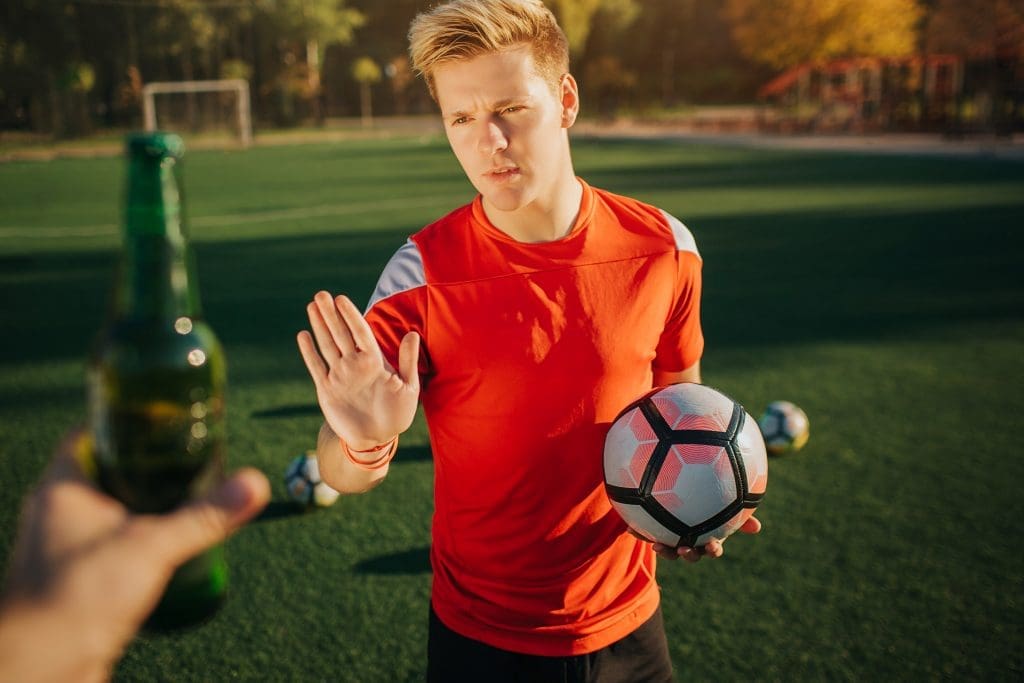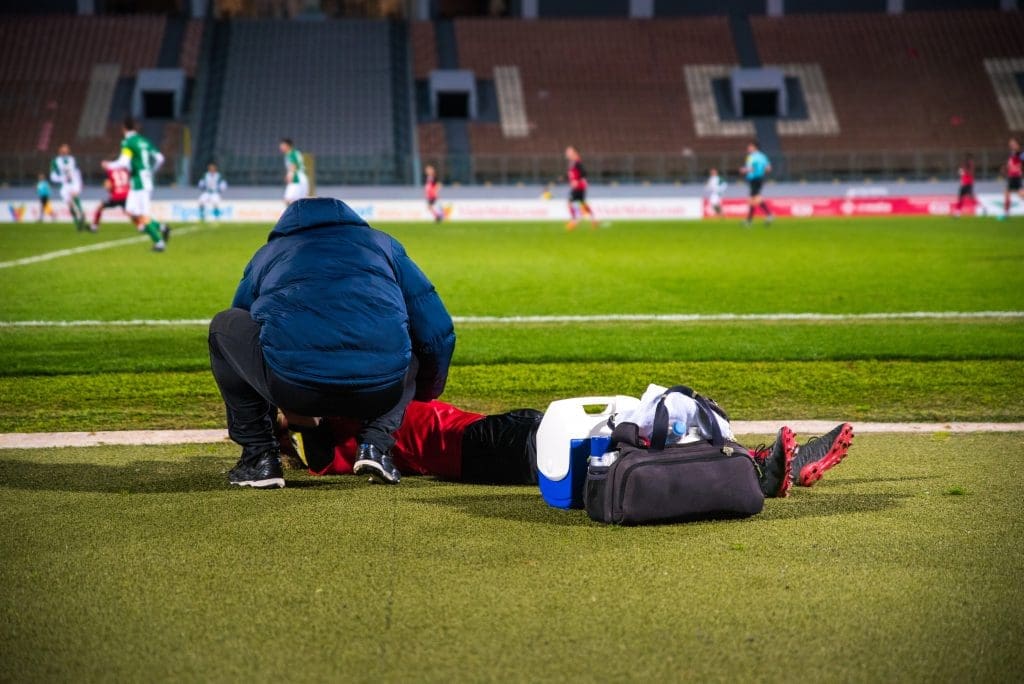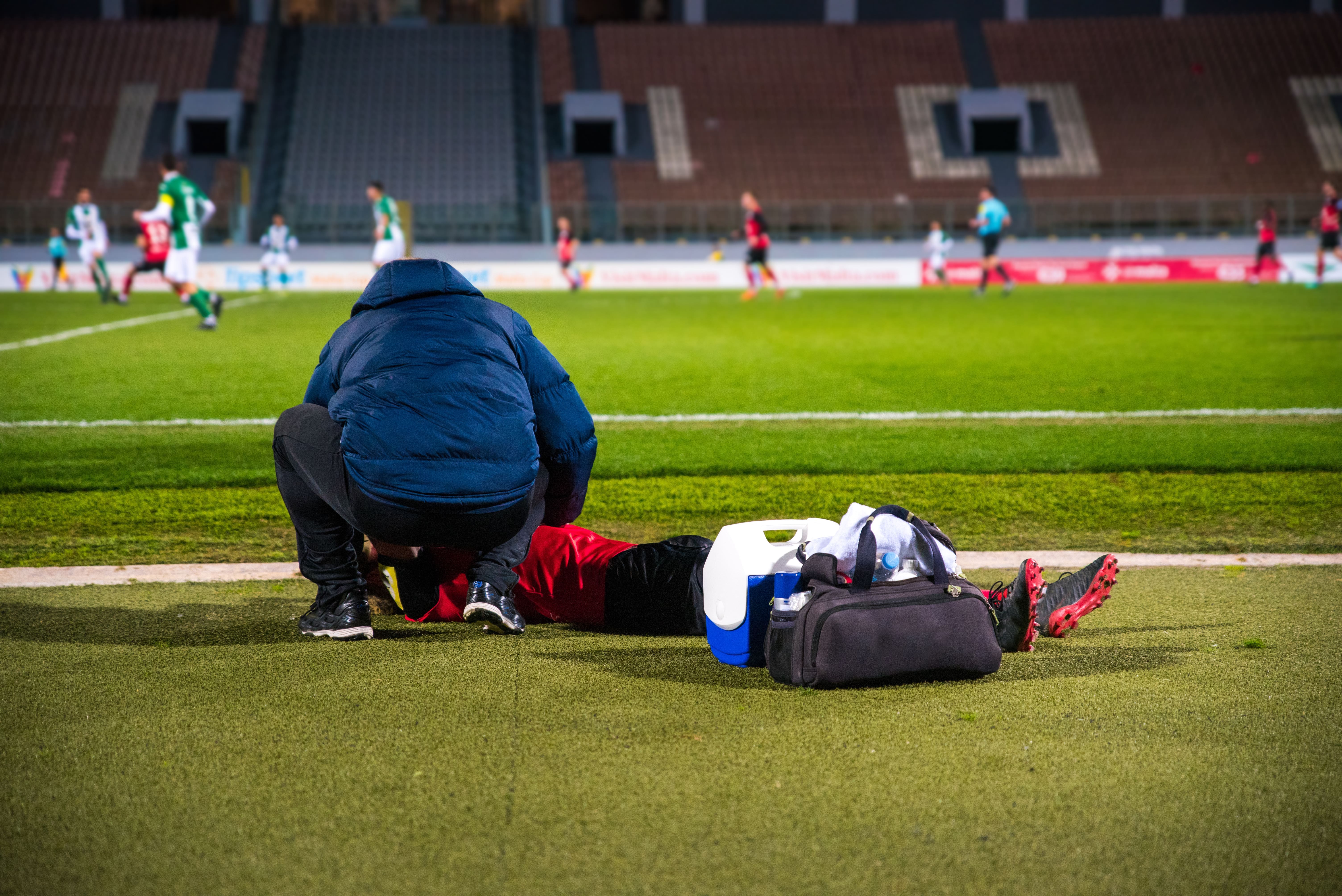Doping is arguably far less prominent in football than in other sports such as athletics and cycling where there have been high profile cheating scandals.
That said, there have been a number of cases throughout the years around footballers using illicit substances whether for the purpose of performance enhancements or otherwise. There are those who say addiction within the sport is a much bigger issue than is realised.
Ex-professional footballer with Aston Villa, Nottingham Forest, Derby and England, Gary Charles, an ambassador of Delamere rehab centre, faced alcohol problems during his career but kept them largely hidden. He worries that players don’t feel able to speak out about addiction issues for fear of damaging their careers.
Gary himself got sober in 2007 with the support of our clinical director Mike Delaney and speaks publicly and gives talks about his own experiences with alcohol now in a bid to reduce the stigma around addiction, wanting to demonstrate that addiction can affect anyone.

Gary Charles’ experiences of alcohol addiction
Gary has been working in the field of addiction recovery support for a number of years now, wishing to help others find a life beyond addiction in the way he has.
He said: “I knew from an early age I had problems around alcohol but I kept it to myself.
“I know there are players suffering with addiction who are frightened to deal with them in-house because they are worried it will affect their playing careers.
“In-house counselling services in the corporate world are often not used for the same reasons. Staff feel it will be detrimental to them moving up the career ladder. I once had a barrister, who needed help with his alcohol use, say to me ‘who is going to employ an alcoholic barrister?’

Call us confidentially at any time to speak to a member of our team.
Call us now: 0330 111 2015
“If I could be a functioning alcoholic as a professional footballer playing at the top level most professionals can do it.
“I was fulfilling my duties every day, turning up and playing the game. The issue for me was that when I wasn’t playing I would occasionally drink and when I had long term injuries I would drink.
“Everyone has the stereotypical view of an alcoholic or drug addict in their head – drinking or using all the time, every day, but addiction takes many forms. That’s why the denial was there for me for such a long time.
“Just because someone is managing to function it doesn’t mean they don’t need help.”
Gary’s problems really took hold when he suffered an injury that kept him off the pitch for extended periods.
How injury plays a part in addiction for footballers
Injury is cited as a potential factor in the addictions, drinking and drug misuse of other footballers too.
Leicester player Matt Piper told Mail Online drinking took over his life when his career came to an end due to injury. He attributes much of his recovery to equine therapy – interacting with a horse, alongside a counsellor.
An investigation by i News said with huge pressures to keep players on the pitch practices of masking injury pain with legal painkillers are so widespread in the sport that it is of concern to many coaches, who see players showing signs of addiction to the drugs.
As well as legal over-the-counter style painkillers, other more controversial drugs may be used with medical reasoning.

Doping in football
The Mirror reported earlier this year that 11 Premier League stars were cleared to continue playing by the FA despite testing positive for performance-enhancing drugs after it was successfully argued they were taken for medical purposes.
There have been claims these kinds of instances are one indicator that there is more of a doping issue in football than appears to be the case, however, there have been strenuous denials of this by ruling bodies.
Gaming addiction in footballers
Gaming is an area that is increasingly being seen as a potentially addictive activity among footballers.
The Sun recently ran the account of one professional player anonymously, who was receiving treatment after becoming obsessed with online game Fortnite.
An expert quoted by the newspaper believed footballers were particularly prone to addiction due to, from an early age, becoming used to seeking and enjoying highs alike those achieved through achieving goals and match wins.

QPR defender Steven Caulker spoke to The Guardian of his own ‘addiction to winning.’ He said it was partially responsible for him developing an addiction to gambling which led to shame and regret. That, plus extreme pressure and anxiety, saw him turning to drink to numb it all.
Players who have the drive to fulfil the necessary repetition and practice necessary to make it in the competitive world of high stakes sport may just be predisposed to addiction.
Perhaps, the striving to be great at a particular discipline, like football, and the compulsion to get better are a more positive kind of manifestation of an addictive personality. When people are able to turn this compulsive drive toward positive goals they become our heroes. When things go wrong for them and that addictive nature causes them harm, they do not need our judgement, but our help and support.

Call us confidentially at any time to speak to a member of our team.
Call us now: 0330 111 2015








